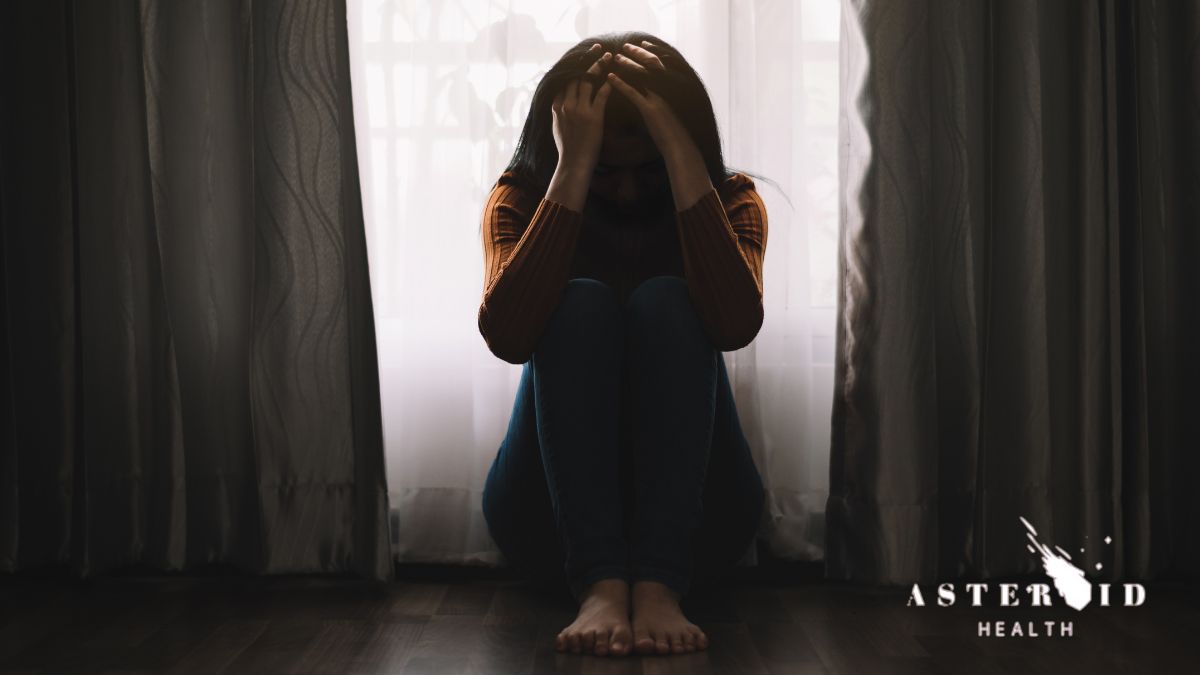
Healing without hitting rock bottom means choosing care before crisis. Take the first step now to protect your well-being and rebuild balance in Massachusetts.
You don’t have to hit rock bottom to heal. Waiting for collapse delays care, increases risks to health, finances, and relationships, and makes recovery harder. Healing earlier through therapy, lifestyle routines, and community support prevents crisis, strengthens coping, and builds resilience before symptoms escalate.
Feeling like you have to crash before you deserve help can make recovery seem out of reach. Healing without hitting rock bottom challenges that idea by showing that small, early steps can be just as life-changing as dramatic turning points.
Up ahead, you’ll see how early action and steady support can make healing possible long before life reaches a breaking point.
The idiom “to hit rock bottom” means reaching the lowest possible point in life or a situation. It describes a state where conditions feel unbearable or cannot get worse. In recovery contexts, it is often seen as the turning point when someone finally seeks help and begins rebuilding.
But while the rock bottom story inspires, it is not a healthy blueprint. Waiting to collapse before addressing pain means enduring unnecessary damage. This mindset leaves people suffering in silence until life feels unbearable.

Hitting rock bottom feels like overwhelming exhaustion, hopelessness, and loss of interest in daily life. People may withdraw, feel isolated, and struggle to function. These experiences mirror depressive episodes. If thoughts of death or self-harm occur, it is a critical warning sign requiring immediate help.
Hitting rock bottom in recovery can feel dramatic, but the consequences are severe:
By the time someone reaches mental health rock bottom, healing is still possible, but it often requires more intensive treatment and longer recovery periods.
Healing without hitting rock bottom means recognizing early signs and responding with care. Small changes can prevent a downward spiral. Here are important signs to notice:
These symptoms may not feel as dramatic as “rock bottom depression,” but they signal that life is becoming harder to manage. Addressing them early makes healing easier.
Therapy, counseling, or structured treatment plans help individuals build coping skills and address the underlying causes of stress or depression. Research shows that recovery is most likely when treatment begins early.
In fact, the probability of recovery during the first three months of a depressive episode is about 15% per month, but this chance drops to only 1–2% per month by years three to five of untreated depression.
Simple changes in routine can stabilize mental health:
Isolation often deepens emotional pain. Seeking connection through support groups, trusted friends, or community programs helps create accountability and encouragement. People who engage in peer support groups report higher recovery satisfaction and stronger coping skills.
Healing requires tools. Practices like journaling, meditation, or grounding exercises help regulate emotions before they spiral. Apps and guided resources make these skills more accessible.

Recovering from rock bottom starts with safety: seek immediate crisis help if thoughts of self-harm appear. Then build small anchors like consistent sleep, movement, and social contact. Add one manageable step daily. Long-term recovery combines therapy, medication, peer or family support, and healthy routines.
For some, despite best efforts, life may still reach crisis. Rock bottom moments may involve job loss, addiction relapse, or deep depression. When that happens, immediate action matters:
Hitting rock bottom in recovery is not the only path to change, but for those who experience it, recovery still remains possible with structured support.
A healthier view of healing shifts the focus from collapse to prevention. Instead of asking, “How bad do things need to get before I deserve help?” people can ask, “What support will help me now?”
This mindset reduces stigma and creates more compassionate self-care. Communities can also shift language, such as celebrating stories of early intervention, steady growth, and prevention, instead of only spotlighting collapse and redemption narratives.
Healing does not require collapse. Burnout, depression, or addiction struggles can be addressed earlier with professional support, lifestyle structure, and strong relationships. Many people find that engaging in mental health services in Massachusetts helps them strengthen their daily lives before challenges grow into crises.
At Asteroid Health, therapy and treatment plans focus on helping individuals recognize issues early, develop coping skills, and rebuild balance. Clients often share that the greatest relief came from realizing they did not have to wait for a breakdown to deserve support.
You do not have to hit rock bottom to heal. Every small step forward counts. Reach out today to begin recovery and take back control of your future.
Healing without hitting rock bottom means choosing care before crisis. Take the first step now to protect your well-being and rebuild balance in Massachusetts.

You don’t have to hit rock bottom to heal. Waiting for collapse delays care, increases risks to health, finances, and relationships, and makes recovery harder. Healing earlier through therapy, lifestyle routines, and community support prevents crisis, strengthens coping, and builds resilience before symptoms escalate.
Feeling like you have to crash before you deserve help can make recovery seem out of reach. Healing without hitting rock bottom challenges that idea by showing that small, early steps can be just as life-changing as dramatic turning points.
Up ahead, you’ll see how early action and steady support can make healing possible long before life reaches a breaking point.
The idiom “to hit rock bottom” means reaching the lowest possible point in life or a situation. It describes a state where conditions feel unbearable or cannot get worse. In recovery contexts, it is often seen as the turning point when someone finally seeks help and begins rebuilding.
But while the rock bottom story inspires, it is not a healthy blueprint. Waiting to collapse before addressing pain means enduring unnecessary damage. This mindset leaves people suffering in silence until life feels unbearable.

Hitting rock bottom feels like overwhelming exhaustion, hopelessness, and loss of interest in daily life. People may withdraw, feel isolated, and struggle to function. These experiences mirror depressive episodes. If thoughts of death or self-harm occur, it is a critical warning sign requiring immediate help.
Hitting rock bottom in recovery can feel dramatic, but the consequences are severe:
By the time someone reaches mental health rock bottom, healing is still possible, but it often requires more intensive treatment and longer recovery periods.
Healing without hitting rock bottom means recognizing early signs and responding with care. Small changes can prevent a downward spiral. Here are important signs to notice:
These symptoms may not feel as dramatic as “rock bottom depression,” but they signal that life is becoming harder to manage. Addressing them early makes healing easier.
Therapy, counseling, or structured treatment plans help individuals build coping skills and address the underlying causes of stress or depression. Research shows that recovery is most likely when treatment begins early.
In fact, the probability of recovery during the first three months of a depressive episode is about 15% per month, but this chance drops to only 1–2% per month by years three to five of untreated depression.
Simple changes in routine can stabilize mental health:
Isolation often deepens emotional pain. Seeking connection through support groups, trusted friends, or community programs helps create accountability and encouragement. People who engage in peer support groups report higher recovery satisfaction and stronger coping skills.
Healing requires tools. Practices like journaling, meditation, or grounding exercises help regulate emotions before they spiral. Apps and guided resources make these skills more accessible.

Recovering from rock bottom starts with safety: seek immediate crisis help if thoughts of self-harm appear. Then build small anchors like consistent sleep, movement, and social contact. Add one manageable step daily. Long-term recovery combines therapy, medication, peer or family support, and healthy routines.
For some, despite best efforts, life may still reach crisis. Rock bottom moments may involve job loss, addiction relapse, or deep depression. When that happens, immediate action matters:
Hitting rock bottom in recovery is not the only path to change, but for those who experience it, recovery still remains possible with structured support.
A healthier view of healing shifts the focus from collapse to prevention. Instead of asking, “How bad do things need to get before I deserve help?” people can ask, “What support will help me now?”
This mindset reduces stigma and creates more compassionate self-care. Communities can also shift language, such as celebrating stories of early intervention, steady growth, and prevention, instead of only spotlighting collapse and redemption narratives.
Healing does not require collapse. Burnout, depression, or addiction struggles can be addressed earlier with professional support, lifestyle structure, and strong relationships. Many people find that engaging in mental health services in Massachusetts helps them strengthen their daily lives before challenges grow into crises.
At Asteroid Health, therapy and treatment plans focus on helping individuals recognize issues early, develop coping skills, and rebuild balance. Clients often share that the greatest relief came from realizing they did not have to wait for a breakdown to deserve support.
You do not have to hit rock bottom to heal. Every small step forward counts. Reach out today to begin recovery and take back control of your future.
.jpg)
.jpg)

-ink.jpeg)
-ink.jpeg)
-ink.jpeg)
-ink.jpeg)
-ink.jpeg)
.jpg)
.jpg)
-ink.jpeg)
-ink.jpeg)
-ink.jpeg)
-ink.jpeg)
-ink.jpeg)
.jpg)
.jpg)
.jpg)
.jpg)
.jpg)
.jpg)
.jpg)
.jpg)






